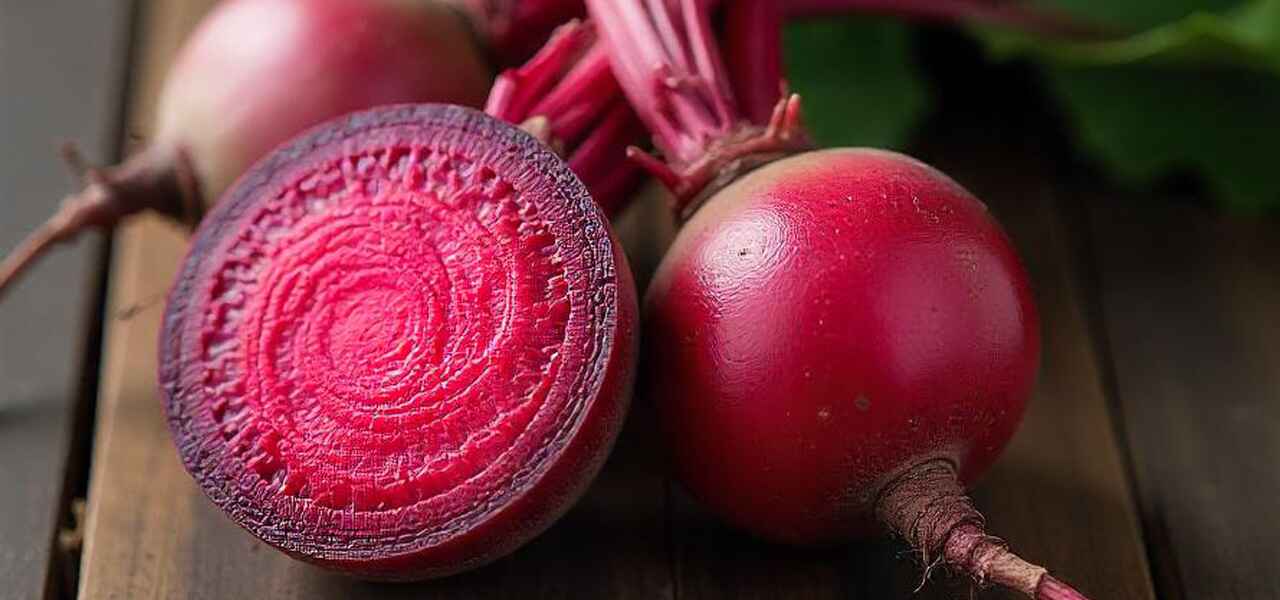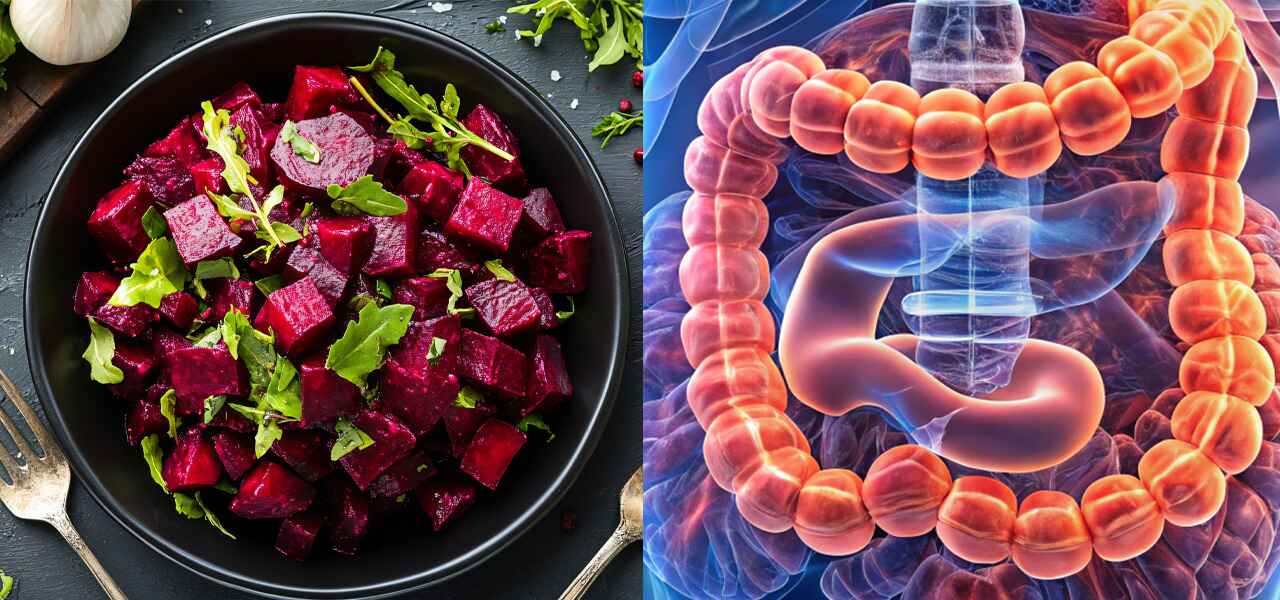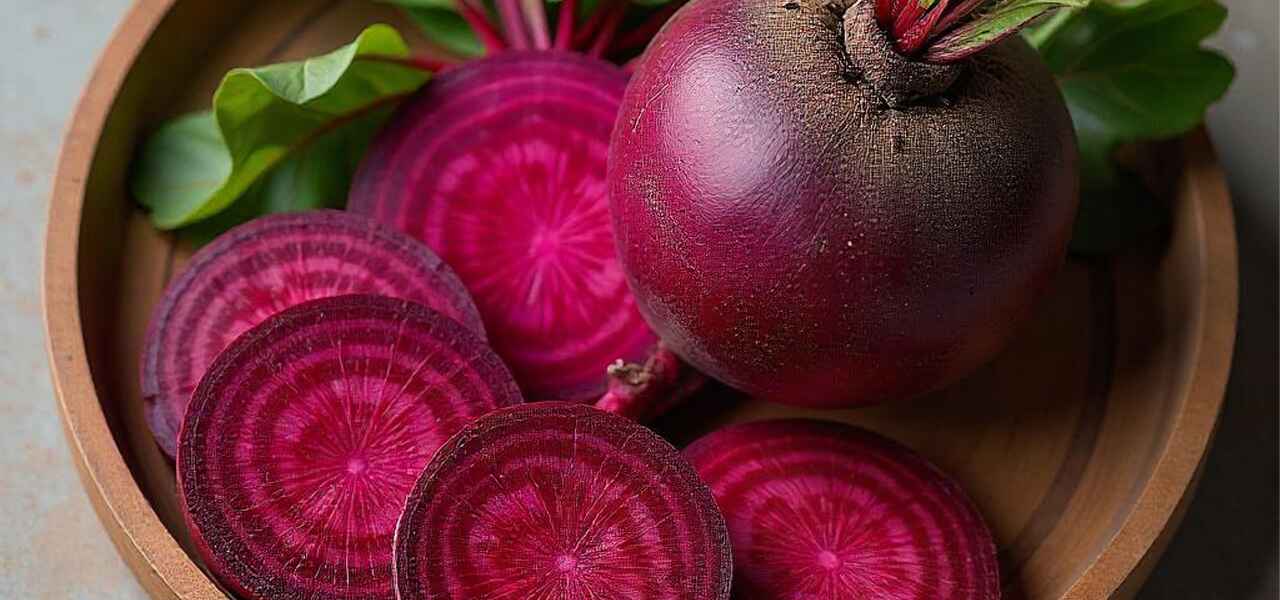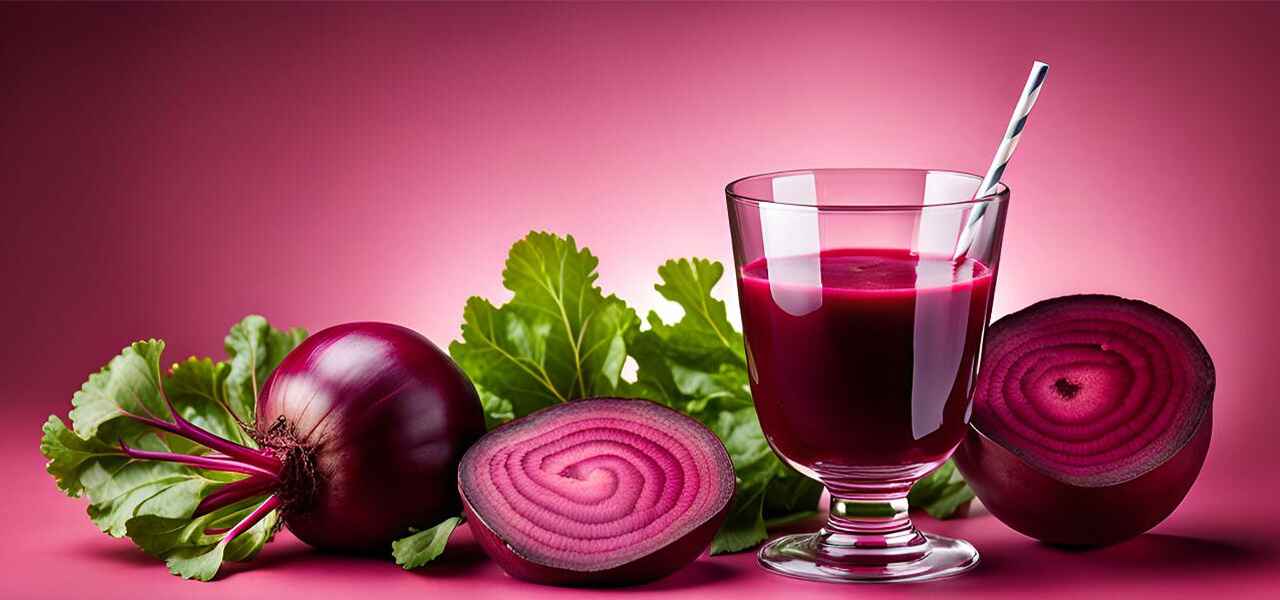Introduction
Beets, also known as beetroots, are a vibrant, nutrient-packed vegetable that has been celebrated for centuries due to their numerous health benefits. Whether consumed raw, roasted, juiced, or pickled, beets have carved a significant niche in both culinary and health circles. Their deep red color, which comes from betalains, is not only striking but also serves as a marker of the root’s many health-enhancing properties.
In this blog, we will delve into the key benefits of beets, backed by scientific research, and explore how incorporating this humble vegetable into your diet can significantly improve your overall health and well-being.
- Rich in Nutrients and Low in Calories
Beets are a nutritional powerhouse, providing an abundance of essential vitamins and minerals while being relatively low in calories. A 100-gram serving of beets offers the following nutrients:
- Calories: 43
- Protein: 1.6 grams
- Carbohydrates: 9.6 grams
- Fiber: 2.8 grams
- Vitamin C: 8% of the Recommended Daily Intake (RDI)
- Folate (Vitamin B9): 20% of the RDI
- Potassium: 9% of the RDI
- Manganese: 16% of the RDI
- Iron: 4% of the RDI
This nutrient profile highlights the dense concentration of vitamins and minerals that beets provide, including important micronutrients like folate, potassium, and iron. Folate is especially crucial for DNA synthesis and cell function, making beets an excellent food for promoting healthy cell growth and development.
- Supports Heart Health
Beets are one of the best natural sources of nitrates, compounds that the body converts into nitric oxide, a molecule that helps relax and dilate blood vessels. This process enhances blood flow and reduces blood pressure, which are crucial factors in maintaining heart health.
Several studies have demonstrated that consuming beet juice or whole beets can lead to a noticeable reduction in blood pressure levels. High blood pressure is one of the leading risk factors for heart disease and stroke. By including beets in your diet, you may significantly reduce the risk of cardiovascular problems. In a study published in the journal Hypertension, participants who drank beetroot juice saw a reduction in both systolic and diastolic blood pressure, suggesting that beets may have a direct impact on heart health.
- Boosts Athletic Performance
The nitrates in beets do more than just improve heart health—they also enhance athletic performance. The increased nitric oxide levels from consuming beets improve oxygen efficiency during exercise, allowing muscles to work more effectively and recover faster.
Athletes, particularly endurance runners and cyclists, have started incorporating beetroot juice into their routines as a natural performance booster. Research published in the Journal of Applied Physiology suggests that consuming beetroot juice before exercise can improve endurance, enhance stamina, and reduce the time it takes to become fatigued.
- Improves Digestive Health
Fiber plays a critical role in maintaining digestive health, and beets are an excellent source of dietary fiber. A single cup of beets contains approximately 3.8 grams of fiber, which aids in promoting healthy digestion and preventing constipation.
Dietary fiber adds bulk to stools, facilitating their movement through the digestive tract and promoting regular bowel movements. Additionally, a fiber-rich diet has been linked to a lower risk of chronic diseases such as colon cancer, heart disease, and type 2 diabetes. Incorporating beets into your daily meals can help ensure your digestive system runs smoothly while also contributing to overall gut health.
- Supports Brain Health
As we age, cognitive function naturally declines, but the nitrates found in beets may help slow this process. Nitric oxide produced from dietary nitrates increases blood flow to the brain, particularly in regions responsible for critical cognitive functions like memory and decision-making.
A study conducted at Wake Forest University found that older adults who drank beetroot juice showed improved blood flow to the brain and better cognitive function compared to those who did not. This suggests that regular consumption of beets may help support brain health and reduce the risk of age-related cognitive decline. Beets’ folate content further enhances brain function, as folate deficiency has been linked to cognitive impairment and an increased risk of neurodegenerative diseases such as Alzheimer’s.
- Anti-Inflammatory Properties
Beets contain powerful antioxidants, such as betalains, which have strong anti-inflammatory properties. Chronic inflammation is a contributing factor to many diseases, including heart disease, type 2 diabetes, and certain cancers.
Betalains, which are responsible for the deep red color of beets, have been shown to reduce inflammation and oxidative stress in the body. Consuming beets regularly can help lower the risk of chronic inflammation and associated conditions. A study published in the journal Nutrients demonstrated that the antioxidants in beets helped reduce markers of inflammation in animal studies, suggesting potential benefits for humans as well.
- Supports Detoxification
The liver plays a crucial role in detoxifying the body, and beets may help support this process. The betaine found in beets aids in liver function by supporting detoxification and protecting the liver from oxidative damage.
Beets stimulate the production of enzymes that support the liver’s natural detoxification processes, helping to eliminate toxins more effectively. Consuming beets regularly can promote liver health and assist in cleansing the body of harmful substances.
Additionally, beets are a good source of choline, a nutrient that helps prevent fat accumulation in the liver, thus supporting overall liver function.
- May Help Fight Cancer
The powerful antioxidants found in beets, particularly betalains, may also play a role in reducing the risk of certain types of cancer. Antioxidants protect cells from oxidative stress, which is known to contribute to the development of cancer.
Research published in the journal Anti-Cancer Agents in Medicinal Chemistry found that betalains exhibit potent anti-cancer properties. The study suggests that these compounds may help inhibit the growth of cancer cells and promote the death of malignant cells. While more research is needed to fully understand the anti-cancer properties of beets, preliminary studies show promising results, particularly in the prevention of colon, lung, and stomach cancers.
- Promotes Healthy Skin
Beets are rich in antioxidants and vitamins, particularly vitamin C, which plays a crucial role in maintaining healthy skin. Vitamin C is essential for the production of collagen, a protein that gives skin its structure and elasticity.
The high antioxidant content of beets also helps combat free radicals, which can cause premature aging and skin damage. Consuming beets may help promote a youthful, glowing complexion while protecting the skin from environmental stressors. Furthermore, beets can also help detoxify the body, and a healthy liver translates into clearer, healthier skin.
- Supports Weight Loss
For those looking to lose weight or maintain a healthy weight, beets are an excellent food to include in your diet. They are low in calories and high in water content, making them a filling yet nutrient-dense option. The fiber content in beets also promotes satiety, helping you feel full longer and reducing overall calorie intake. By adding beets to salads, smoothies, or meals, you can enhance your weight loss efforts without sacrificing essential nutrients.
Conclusion:
Beets are more than just a colorful addition to your plate—they are a nutritional powerhouse that offers numerous health benefits. From supporting heart and brain health to aiding digestion, reducing inflammation, and promoting detoxification, beets are a versatile and health-boosting vegetable that deserves a regular place in your diet.
Whether you’re an athlete looking for a natural performance enhancer or simply someone aiming to improve your overall well-being, beets provide a simple yet effective way to boost your health. Incorporate beets into your meals and enjoy the wide range of benefits that this remarkable root vegetable has to offer.










